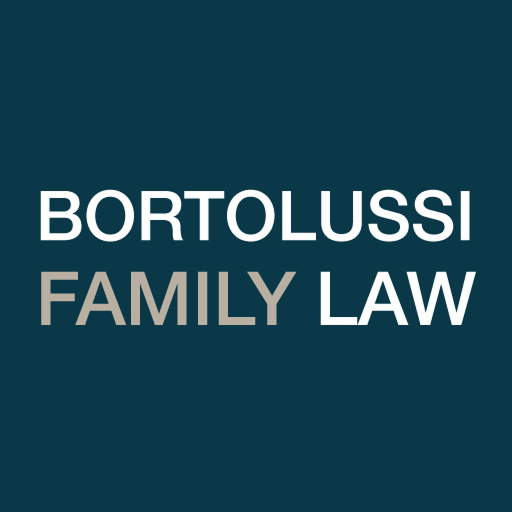FAQs About Family Mediation in Ontario

When parties disagree on family law issues, such as parenting arrangements, support entitlement, and property division, there are several ways in which they may reach a resolution. While divorce proceedings are commonly associated with the court system, several alternative dispute resolution avenues are available to parties. This blog post will answer some of the most commonly asked questions regarding family mediation.
What is family mediation?
Family mediation is a voluntary, structured settlement procedure for parties going through a separation or divorce. It is a form of alternative dispute resolution that allows the parties to pick a neutral and independent third-party mediator to help them work through particular issues, such as parenting arrangements or property division. The mediator helps parties explore possible resolution opportunities by facilitating honest discussions, dialing in on the key issues, evaluating settlement proposals, and encouraging parties to compromise.
How does a family lawyer help at a mediation?
Having an experienced family law lawyer represent you at mediation can be an invaluable resource. Not only will a lawyer be able to provide you with legal advice with regard to your rights and entitlements under the applicable law, but they can also help you work through negotiations and possible solutions. Following a successful mediation outcome, the lawyers will also review and finalize the final agreement.
Who is family mediation for?
Mediations are most successful when the parties approach mediation with an open mind and a desire to find common ground. Therefore, mediation can be worthwhile for parties who are prepared to cooperate and work together to resolve outstanding issues as efficiently as possible.
By design, mediation can be particularly beneficial in cases where children are involved, as it encourages parties to express themselves, listen to the other parent’s positions, and work together to find an agreeable solution. Parents can then use these skills outside of the mediation to reduce conflict and communicate effectively.
What are the benefits of family mediation?
Each method of dispute resolution comes with benefits and drawbacks, so it is important for parties to choose an avenue for resolution based on their unique circumstances and needs. Some of the primary benefits of mediation include:
Encourages cooperation and minimizes conflict
Mediation encourages parties to resolve their issues respectfully and amicably. The mediation process is flexible and is set up to minimize conflict and accommodate the parties’ needs. In cases of high conflict, an experienced mediator can structure the process so that both parties feel comfortable and are being heard. This process emphasizes the importance of the parties working together to reach mutually agreeable arrangements and can help set the groundwork for a long-term, healthy relationship.
Cost-effective
Compared to traditional litigation and other alternative dispute resolution methods, mediation may provide the parties with substantial cost savings. Aside from their own legal fees, expert reports, and additional evidence costs, the parties typically share the cost of the mediation (such as the mediator and any travel expenses) equally. Further, because mediation takes place outside of the courtroom, additional costs such as filing fees and other court appearances are avoided if a settlement is reached.
Timely resolutions
Mediation can be scheduled much quicker than if a matter proceeds through the courts. Whereas parties will be required to attend several court appearances and may not be scheduled for trial for several months or years, mediation can resolve outstanding issues in one day much sooner.
Tailored and creative settlement agreements
Mediation places the disputing parties in the driver’s seat and encourages them to express their hesitations, needs and wants in a safe environment. Unlike in family law arbitration or litigation, where an arbitrator or judge imposes a binding settlement on the parties, family mediation allows the parties to participate and get creative when determining the outcome of their separation or divorce. By actively engaging in the mediation process, parties can make informed decisions that align with their goals and circumstances that a court may otherwise not be able to grant them.
Private and flexible process
As a default, mediation is closed and is a private and confidential process unless the parties choose for it to be open. Therefore, the discussions and documents from mediation cannot be shared in court outside of very limited circumstances, for example, if the mediator has concerns for a child’s safety.
Parties now also have the opportunity to choose whether mediation will take place in person or virtually via Zoom or a similar platform. Some of the best agreements occur when the parties are able to sit at the same table to discuss resolution. However, mediation also allows for the parties to be in separate rooms for much of the mediation. This process can be tailored to ensure that parties do not have to be face-to-face or directly in contact with each other.
How long does family mediation take?
The duration of a mediation session generally depends on several factors, such as the parties’ preparedness and willingness to make concessions and explore settlement options. Some mediation sessions may conclude after only a few hours, while others may last a full day or longer to allow for a thorough exploration of key issues and encourage productive discussions. Some of the best agreements occur when the issues are addressed in a series of sessions of two to three hours each. This allows the parties to think about the discussion and consider the options discussed and their consequences. This allows them to discuss the issues and the options with their respective lawyers and to understand what is being proposed and how it will affect them in the future. This often ensures that the agreements made endure because the parties truly understand what they agreed to and have been given the opportunity to make an informed decision about whether they can live with the terms of the proposed agreement.
What takes place in a family mediation?
A family mediation session generally starts with an introduction to the parties and the mediator setting out the process, rules, and general responsibilities and expectations of the parties. The mediator will help the parties facilitate information gathering and issue identification to ensure the parties are on the same page and can help prioritize critical issues.
In family mediation, it is critical that complete financial disclosure has been exchanged if financial issues like support or equalization of property are being discussed. If financial disclosure has not been made, the mediator can help the parties identify what must be provided and set a schedule to return to mediation to deal with the financial issues. Making an agreement in mediation without financial disclosure is like trying to make a deal blindfolded. The failure to disclose a substantial asset or debt can also end up making the agreement between the parties unenforceable in the future. The entire process will have been for naught if that occurs.
The mediator will then help the parties facilitate open and constructive communication to help each party understand the other’s wants, hesitations, and compromises. The focus in mediation can be on the interests of the parties instead of on legal positions. This process aids the parties in exploring mutually acceptable terms and solutions to resolve outstanding issues. As long as they are aware of their legal rights and obligations, they can make an agreement that does completely align with what the law would require a judge to order. They may give up something they are entitled to for something else they would much rather have. This is one of the reasons independent legal advice is important before entering into mediation. The parties have a right to know what they are entitled to and what they are obligated by law to do and bargain with each other within that framework.
After a mediation session, the parties may schedule a subsequent session or may determine that they cannot find common ground and may decide to hand the decision making over to the court to determine a final outcome. Alternatively, if the parties can agree on a settlement, the mediator will prepare a Memorandum of Understanding (which is not binding on the parties), which will be provided to the parties as the basis of a final separation agreement which is binding on the parties.
Can the mediator impose a settlement on the parties?
During family mediation proceedings, the mediator facilitates open communication and encourages spouses to listen and consider the issue from the perspective of the other spouse. A mediator does NOT provide independent legal advice. If the mediator is also a lawyer, some basic information can be provided to both parties in the same manner but the parties must have their own independent legal counsel for legal advice. It is important for each spouse to have had a meaningful consultation with their Family Law lawyer prior to mediation. It is also important that they have independent legal advice available to them during the mediation. Once a memorandum of understanding is arrived at, their respective lawyers should provide them with independent legal advice of the terms of the agreement. The mediator must remain neutral and should never provide independent legal advice to either party or recommendations to one of the spouses to the prejudice of the other.
They may also discuss matters concerning child custody, spousal support, parenting plans, and property division. The mediator does not impose any decisions on the parties or force them to enter into a settlement. However, a mediator’s commentary and insight may help persuade parties to consider different viewpoints, make concessions, and explore settlement options they may have otherwise not considered.
What happens after a successful mediation?
Mediation allows parties to be innovative and create their own terms when attempting to reach a settlement. After the mediation, the mediator will prepare the progress notes from the session, outlining the agreements made by the parties. The mediator will compile the agreed-upon terms into a Memorandum of Understanding, which will provide a foundation for the parties’ lawyers to draft a comprehensive separation agreement. Once both parties approve the separation agreement, the final agreement will be signed and become binding on the parties.
What happens if the mediation is unsuccessful?
It is important to remember that if a mediation did not result in a final settlement, it does not mean it was unsuccessful. Often, parties greatly benefit from mediation by gaining insight regarding their arguments and positions and can better understand the other party’s perspective on specific issues.
If a mediation session does not result in a mutual agreement, the parties may choose to schedule a subsequent session, or they may determine that further mediation will not be beneficial and may decide to proceed with litigation. In either case, the mediator will prepare the progress notes from the sessions, outlining the agreements made by the parties and any follow-up items that must be completed before the next mediation session, if applicable, and send them to the parties.
Contact the Family Lawyers at Bortolussi Family Law in Vaughan for Representation in Family Mediation
The skilled family lawyers at Bortolussi Family Law believe alternative dispute resolution, such as mediation, can benefit parties in many ways. When possible, family mediation allows parties to protect their rights regarding parenting time, decision-making responsibility, support claims, and property division while maintaining a healthy dynamic with their former spouse or partner. We focus on securing a satisfactory outcome for each of our clients so that they can move forward. To schedule a confidential consultation, contact us at 416-987-3300 or reach out to us online.
